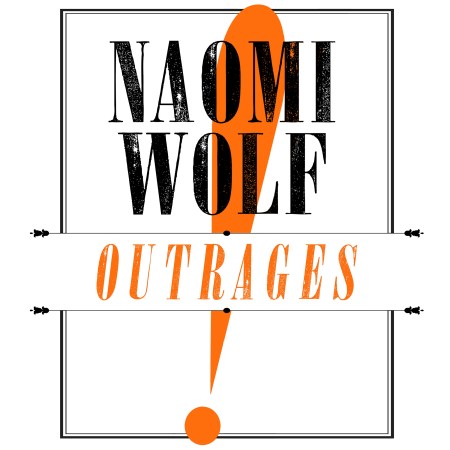Outrages
On sale
20th May 2019
Price: £19.99
The bestselling author of The Beauty Myth, Vagina and The End of America illuminates a dramatic history – how the Obscene Publications Act of 1857 led to a maelstrom, with reverberations lasting to our day.
At once, dissent and morality, deviancy and normalcy, became modern legal concepts: if writers, editors, printers and booksellers did not uphold the law and the morals of society they faced serious repercussions.
Wolf depicts the ways this censorship played out – decades before the infamous trial of Oscar Wilde – among a bohemian group of ‘sexual dissidents’, including Walt Whitman in America and the English critic John Addington Symonds, who fell in love with Whitman’s homoerotic voice in Leaves of Grass. This was a dangerous love, as dire prison terms and even executions became penalties for such love, even if only expressed on the page.
Algernon Charles Swinburne, Dante and Christina Rossetti, Walter Pater and painter Simeon Solomon were among the artists whose lives were shadowed with jeopardy. But Wolf also reveals how, cleverly, they crafted their works to avoid the censor.
Wolf recounts how a dying Symonds, inspired by his love for Whitman, helped to write the book on ‘sexual inversion’ one of the foundations of our modern understanding of homosexuality. By shining a light on his secret memoir, rightfully understood as one of the first gay rights manifestos in the west, Outrages also shows how the literature of love ultimately triumphs over censorship.
At once, dissent and morality, deviancy and normalcy, became modern legal concepts: if writers, editors, printers and booksellers did not uphold the law and the morals of society they faced serious repercussions.
Wolf depicts the ways this censorship played out – decades before the infamous trial of Oscar Wilde – among a bohemian group of ‘sexual dissidents’, including Walt Whitman in America and the English critic John Addington Symonds, who fell in love with Whitman’s homoerotic voice in Leaves of Grass. This was a dangerous love, as dire prison terms and even executions became penalties for such love, even if only expressed on the page.
Algernon Charles Swinburne, Dante and Christina Rossetti, Walter Pater and painter Simeon Solomon were among the artists whose lives were shadowed with jeopardy. But Wolf also reveals how, cleverly, they crafted their works to avoid the censor.
Wolf recounts how a dying Symonds, inspired by his love for Whitman, helped to write the book on ‘sexual inversion’ one of the foundations of our modern understanding of homosexuality. By shining a light on his secret memoir, rightfully understood as one of the first gay rights manifestos in the west, Outrages also shows how the literature of love ultimately triumphs over censorship.
Newsletter Signup
By clicking ‘Sign Up,’ I acknowledge that I have read and agree to Hachette Book Group’s Privacy Policy and Terms of Use
Reviews
An important look at how the Obscene Publications Act helped usher in the state's purported need and right to police speech
With precision and sensitivity, Naomi Wolf traces how the state came to police the private sphere; she brings into the light the lives of those whose resistance to this brutality was a beacon for the future. Outrages is a remarkable, revelatory book
Outrages reveals a powerful history of how science, law and culture intersected to suppress and silence sexual expression
A remarkable and moving work of creative scholarship
An absorbing and thoughtfully researched must-read for anyone interested in the history of censorship and issues relating to gay male sexuality
This ambitious literary, biographical, and historical treatise from Wolf examines both nineteenth-century Britain's persecution of gay men and the work and life of the relatively obscure gay writer John Addington Symonds . . . A fascinating look at this period and these writers
A heartbreaking, eye-opening book . . . Outrages is revelatory in the way it brings together sometimes unbearably painful personal narratives with political and literary history . . . [a] remarkable book

